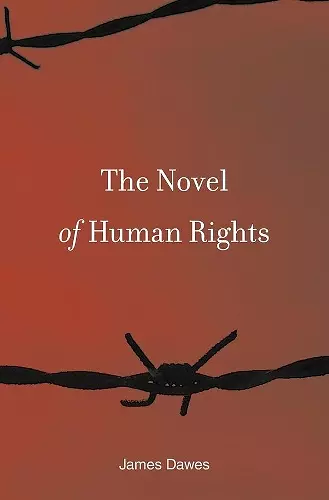The Novel of Human Rights
Format:Hardback
Publisher:Harvard University Press
Published:28th Sep '18
Currently unavailable, and unfortunately no date known when it will be back

The Novel of Human Rights defines a new, dynamic American literary genre. It incorporates key debates within the contemporary human rights movement in the United States, and in turn influences the ideas and rhetoric of that discourse.
In James Dawes’s framing, the novel of human rights takes as its theme a range of atrocities at home and abroad, scrambling the distinction between human rights within and beyond national borders. Some novels critique America’s conception of human rights by pointing out U.S. exploitation of international crises. Other novels endorse an American ethos of individualism and citizenship as the best hope for global equality. Some narratives depict human rights workers as responding to an urgent ethical necessity, while others see only inefficient institutions dedicated to their own survival. Surveying the work of Chris Abani, Susan Choi, Edwidge Danticat, Dave Eggers, Nathan Englander, Francisco Goldman, Anthony Marra, and John Edgar Wideman, among others, Dawes finds traces of slave narratives, Holocaust literature, war novels, and expatriate novels, along with earlier traditions of justice writing.
The novel of human rights responds to deep forces within America’s politics, society, and culture, Dawes shows. His illuminating study clarifies many ethical dilemmas of today’s local and global politics and helps us think our way, through them, to a better future. Vibrant and modern, the human rights novel reflects our own time and aspires to shape the world we will leave for those who come after.
James Dawes is one of the founders of the interdiscipline of literature and human rights, with his important That the World May Know and Evil Men. His new book provides a map for traveling the complex paths laid out by the evolving human rights project and by literary artists who represent both rights violations and remedies in their work. The Novel of Human Rights is a landmark. -- Elizabeth Swanson, Babson College
Human rights and literature scholars have worked around the edges of genre issues, but this book establishes an entirely new conceptual framework. It builds the case that the human rights novel is a definable genre, produced by deep and wide social, political, and cultural forces. Dawes’s insightful analysis of individual works and the genre advances our understanding of those forces, why we face the ethical dilemmas we face in contemporary local and global politics, and how we might think our way through these dilemmas to a better future. -- Greg Mullins, Evergreen State College
Argues persuasively that one of the places we might still find vibrant and critical human rights is in the contemporary American novel…A welcome example of slow reading, hard thinking and the value of reality-testing in dire political times. * Times Higher Education *
ISBN: 9780674986442
Dimensions: unknown
Weight: unknown
240 pages